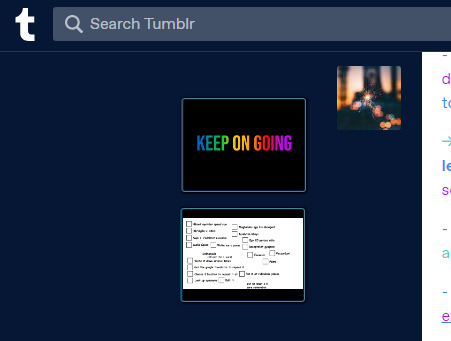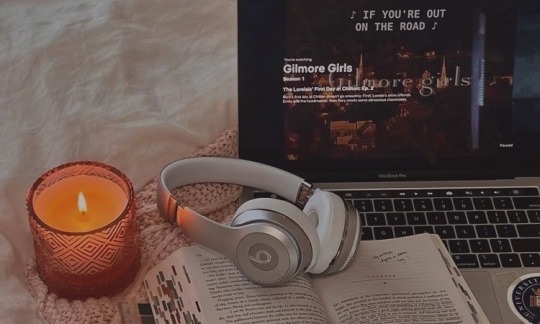Text
adhd study tips.
by a stem student with adhd.
disclaimer!!! I’m by no means an expert in mental health or adhd but I do happen to have it. My intention with this post is to help others with adhd get more comfortable with studying so the process will be smoother for them!! At the end of the day, despite having the same disorder our brains will still work differently so do keep in mind that these may or may not help you, but are something you can try out if you’re stuck on not being able to study efficiently.
here’s some adhd study affirmations + tips on straying from discouragement if you’re experiencing burnout.
(And here’s part 2 of adhd study tips.)
I’ll start this off by listing more commonly known study tips that also work well with adhd.
change up your environment every now and then. we seek novelty even more than neurotypical people already do so switching it up will definitely help in our studies, especially if the place is well lit!
try some questions of the topic you’re trying to learn even when you know nothing about it. both neurotypical and neurodivergent brains are hardwired to remember things when we are proven wrong, and this is a great way of utilizing this neurological response!
take walks, exercise or stretch during your breaks. this tip is very effective at satiating our hyperactivity and also keeps us energized throughout our study session.
keep a notebook for your brain dump / ideas. we always either think of really stupid things or the most brilliant ideas in the middle of our study sessions and it almost always leads to distraction, but writing it down somewhere lets your brain know that the idea isn’t going anywhere and you can continue studying.
now, onto the tips that have personally helped with my adhd (and I haven’t seen many others talk about.)
alternate between various study plans, routines, schedules and techniques and always be open to finding more of them. majority of the time people always say ‘have a routine that works for you and stick with it’ but our adhd brains get bored very quickly, especially when it comes to repeated routines and schedules. I personally never stick to the same routine or plan more than three days in a row and sometimes I even make a plan on the spot and I’ve been more productive doing that than when I had only one or two study routines to switch between.
do not time yourself at the very beginning. Instead, focus on something in your studies you’re interested in and start there. what do I mean by this? well, since starting is always the hardest, when we begin our very first pomodoro we might find ourselves spending the first 25 minutes zoning out on a textbook just to get that ‘study time’ in even though you didn’t actually learn or recall anything. So to combat this, begin with something you’re genuinely curious about, or ask a question you can’t help but wonder the answer to. Once you find the answer, you might find you’re more in the zone and can continue from there. If not, take a short break and begin the pomodoros afterwards.
if you’re zoning out while reading up on a topic, try walking around while reading, looking at different sources on it or do some questions on that topic. again, novelty always gets us every time. sometimes the problem may be that the explanation in front of you isn’t making sense in your head and other sources may phrase things in a way that is better for your understanding. perhaps the problem is that you’re staying too still and you need to satisfy the hyperactive part of your adhd. or maybe your brain subconsciously believes that they already know what needs to be known about this topic, and there’s no better way to test that by trying out some questions on it.
switch between lyrical and non-lyrical music playlists, but make sure the lyrical music inspires you to excel. this definitely won’t apply to a lot of people but I found that when I constantly listened to piano, lo-fi or just non-lyrical music while studying in general, it actually promoted my likelihood of zoning out. but recently I found a playlist I deeply resonated with that was related to my studies called, ‘pov : a try-hard mid student who wants to ace everything’ and because I related very deeply with both the title and the lyrics of the songs, I was actively being encouraged to study as I was studying. but I also recognize when I really need to think in certain areas and that’s when I switch back to the non-lyrical music.
this is all I have as of right now but please do lmk if you guys want more of these!! I really wanna help out as much people as possible because my studies suffered greatly due to both my adhd and my late diagnosis of it and I’d love to help out others going through something similar.
1K notes
·
View notes
Text
Quick ADHD and study tips:
- Do the minimum. Don't do any more than the school expects you to do. Don't overwork yourself trying to become an expert on every topic ever, making every project a perfect masterpiece.
-> "I'll just do this quickly" method - Do the minimum. What's the least you can do for this topic, the easiest, most minimalist, "laziest" solution possible? Do it. It helps to get started. (exactly what I did here)
- Adjust your routine to a radio's broadcasting schedule (it's background music and "company", aka. chatter in the background)
- Pomodoro timers are too hard to reach from YouTube, here, an extension. (It plays white noise, and makes me miss the sound of rain in the breaks)
- Switch from Word to a notepad, a colored paper, google translator, a tumblr draft, etc., write your essay there.
- Water reminder.
- Too tired to design a PPT: SlidesGo Templates
- Too tired for grammar: Grammarly (or ProWritingAid)
- Too tired for words: Wordtune and Wordtune Read
- This grades essays, this estimates reading time
- This for grammar check, this is for synonyms, acronyms, and everything, this for idioms.
- Set BeLineReader to something colorful (space colors ✨)
- Write it in memes (see the first part of this post), use emojis, make memes, use meme language, edit it like a tumblr post with highlights, side notes, pictures, colors, etc.
- Tell it to someone. There was a history topic I very much disliked until I started to read it, and man, it was hilarious. The warlords made the worst decisions possible! Of course, I told my brother about it.
Look at it as a masterpiece or look at it as a ridiculously bad movie, it will get better. (This goes for literature, history, etc. - why not "make it" into a soap opera?)
- Do it while you wait for something. The water to boil, the baguettes to bake, someone to answer your message. And in the meantime, do something.
- For revisions: Loop a song. One topic-one song. Then you switch the song, next topic. It's even better if the songs are from completely different genres.
- Have a list of stuff you have to do. An optional list. If you can tick off one, you're good. Leave your accomplishments.
[Stuff like, 'write a poem', 'make cocoa', 'sing,' but also, 'eat breakfast normally' and 'write that English essay'.]
(-> Computer "gadgets" (idk what are they called in English) -> set tiny slideshows, and bamm, little reminders that are always visible!
I made the text in Ipiccy, the to-do list in paint)

[ID: A partial screenshot of my tumblr, with the two widgets on it, displaying two small pictures, one is a color gradient text on a black background that reads "keep going", the other is a bit messy to-do list with check squares and simple text on a white background / end of ID]
How to remember anything?/learn stuff
Create (write a poem, make memes, try reading it out loud, but singing, act it out - the possibilities are endless!)
Bee dance ("write down" the letters of the word or numbers of the date walking around)
Make it touchable (form the numbers/letters from plasticine, sticks, gravel, ketchup, candy, shoes, or anything, really)
-> Morse / ASL (knock, clap, or sign the numbers/letters)
Tell it in different styles, on different levels (to a kid, to your dog, to your plant. "Emotionally" as if you were telling some outrageous news, or as if it was the greatest thing in the world! It's ridiculous, it's nonsense! It's so stupid, it's brilliant! It's tragic, actually.
Tell it professionally, as if you knew what you're talking about, like some sassy professor. Tell it as if it happened next door, as if you were some old folk telling it to the children (the good ol' times!), tell it like a bored weather forecaster, present it like in some tv ad!)
Learn it at places (literally, bring your book/little paper to a corner of the house, or out to the park. It's a bit like the mind palace method, "hmm, yes, 1945, the blue shower gel bottle, "amygdala" is in the fridge, and Thales' Theorem is right under the bed.")
The mind palace method, but place the data on a picture (take a picture, a stock photo, anything, and write dates/words at different places)
Speed run (set a timer, it can be Pomodoro, and do what you have to do on max speed. Yes, you got x minutes to sit at this one spot in the bathroom and memorize these words, drink tea, and take out the trash! The clock is ticking! It's adrenalin rush!)
Tie it up with the senses (pick a color/palette, a taste, a smell, a feel, a texture, a style, etc. for each topic you can recall later.
Chew a specific tasted gum while studying, chew the same taste while writing the test. Spray a perfume, set your desktop/phone background to a picture that fits the mood, set the lights, surround yourself with a specific texture, create a mood.)
Make a cheat sheet (write it in a "compressed format," so only you can understand it, and it takes up the least place possible. Tiny drawings, reminders. The point is not to have the information but to have a safe reminder in your pocket, you can reach out to.
You may not even need to use it.)
Have water and sleep (yup, a dehydrated brain can't think, and our brains process information while in REM sleep - a sleep cycle calculator)
Play card games, Activity (do you know the board game "Activity?" Or twenty questions? There are also a bunch of card games [mainly played with French cards] where you have to yell words and smash cards and each other's hands. Well, why not rewrite the game with the words/dates/phrases you need to memorize? Even better if you play it with people who study the same thing as you.)
So, that's it for now. I hope I helped some! :D
3K notes
·
View notes
Text
A few things ive been doing recently that help manage my adhd
Not sure if this will help anyone but i've made a list of things ive been working really hard to do to help manage my adhd and general inability to be a functional adult:
Make reminder posters! Get on canva and create personalized posters to put around your room/house to help remind you to do daily things like take your meds, feed pets, take out trash, etc.
Keep a junk notebook! Anything you think of that cant do immediately write it down. If its important it'll help you remember it, if not it saves you from getting distracted or making impulsive decisions. (This is especially helpful if you tend to get distracted when studying!)
CLEAN AS YOU GO! Whether its taking a cup out of your room every time you leave or washing each dish immediately after use. If you can develop this habit it keeps your space so much cleaner!
Have two laundry bins: one for worn but not dirty things and one for dirty things. It limits what ends up on your floor!
Make use of bins. I have several around my apartment that I use for things that dont have a home. Once those bins are full, I go through them and discard or find a permanent home for them.
Don't study/work at home. Even if it means buying a $5 coffee just so you can sit in a spot and effectively work, its much better than getting so behind on tasks you get overwhelmed.
It takes some work to develop habits and im far from perfect with all of these, but if I can do these things even 3 days a week it makes a huge difference!
1K notes
·
View notes
Note
Hey love, halpy August! I hope you're doing well. Firstly, welcome back. We missed you a ton on here, your posts are literally so helpful haha 💓
Secondly, I wanted to ask if you have any tips and recommendations to grow on LinkedIn and make posts on there as well?
I always see my classmates and mutual mates creating a bunch of long, educational posts and I feel like I should write stuff too but I happen to not get any ideas for it or know what's appropriate to post. I'd really love your guidance for the same, since it's a very important part of a budding career and networking.
Thanks a ton <3
- inara <3
I honestly hate LinkedIn and I stopped using it. Everyone seems to think that they’re some next billionaire with a trillion dollar idea or some spiritual guru with half baked understanding of spirituality and I’m sick of it.
“Today I helped an old woman cross a street and she gave me her great grandmother’s pearl necklace worth millions in return uwu here’s a selfie of us 😗” like stfu. I’m sick of seeing these fake Mother Theresas.
Here’s the reality of content writing. I’ve been working in a media house for years, whether as summer internships and for the past year or so, full time. Content in todays world can only be one of two types if you want to truly make an impact on the audience.
Either you’re the FIRST to deliver some important information - this can be in brief too. But your biggest competitor here would be Twitter. Twitter or X, is the fastest Media house in the world. They can deliver news faster than any tv or newspaper company.
OR, you create detailed reports on something that has been trending that week. Here you have to offer full insights, history, analysis, your own opinions, thoughts, predictions - if you’re going to copy paste from another article or blog then your post is useless. Why would I read your post when I could read the same thing from a reputed blog?
If your posts don’t have value that only YOU can provide - insight that only YOU can provide - thoughts, opinions, ideas that your brain has come up with - it’s of no use then. Why would I as a recruiter hire you if you’re in incapable of having original thoughts and ideas? Why would I pay you to do what someone else can do, probably at lesser cost?
Think over this.
I can’t decide your subjects for you. You have to do it yourself.
21 notes
·
View notes
Text
✨📖My Daily Study Routine - University Version📖✨
Now I am at my third semester at the university, so I‘ve had a lot of time to find the optimal study routine for me. Every day in my week is different, wich is why I basically start to doing my tasks at different times (so this routine only refers to the days off that I can use for studying). Maybe you will have read or heard some tips of mine, but you can still include them individually into you‘re own routine (if you want). I hope my routine motivates you as much as it does to me! And a short information for y‘all, excuse my mistakes in english grammar, english is not the language i usally speak.
1. Get up between 6:00 am 7:00 am⏰
If I have the morning off, I try to start the day relaxed. Things that helping me to do this:
a cup with my favourite tea
drinkin‘ lot‘s of water (but I don‘t mange it it everday)
wearing my favorite cardigan (This might sound ridiculous, but I learn best when I'm wearing my favorite cardigan.)
listen to my favourite Spotify- playlists or watching Gilmore Girls 🎧 (Below I have linked the playllists i am using)
2. Create a good workspace✨
After strating good in the day, I collect all of the thing I need. These are the things I am using:
iPad + keyboard & mouse
Applepen
Airpods
notebook & pens
books (when I need them)
water or tea
I don‘t need many things because I have everything important on my iPad.
3. Get an owerview👀
To-do lists always help me a lot to get an owerview. I‘m using some Apps for this step: (but you can write it down on paper)
Actions
Structured
4. Set priorities✍🏻
For me there are 3 THINGS I have to decide between. These are:
STUDYING
First, I set myself a time limit (i can work better with this). I can learn very well with the following apps:
Forest (you won't believe me how much i love to plant these little trees)
Quizlet (this app helps me a lot when I'm studying for my final exams.)
COMPLETE MY NOTES
If you‘re a student at the university too, than you will know this. Most of the time you will get a „ugly“ PowerPoint for the lecture or seminar. For this reason I make my own study notes (with them I can lern better). When i am writing my notes i am using this App:
Goodnotes (Most of you probably know this app. I can no longer imagine my life without Goodnotes.)
DOING MY HOMEWOKS
For my homeworks I am also setting a timer with the Forest- App. During the semester I probably sit the longest on my homeworks. Since I'm studying Latin, I have to translate a lot of lectures, almost every day.
5. Check you‘re To-do lists again🗒️
When I think I have everything done, I look at my lists again & check them.
6. Tidy up you‘re workspace🧹
I always tidy up after a long study session. Believe me, it's worth it. Then next time you won't have such difficulties sitting down at your desk.
7. Go for a walk🚶🏻♀️
After hours of studying, it‘s beneficial to get some fresh air. (But I have to be honest, I can hardly manage it). But i‘m including this step because it should actually be done (in my opinion).
🎧My study- playlists🎧
270 notes
·
View notes
Text
How to Study like Rory Gilmore


A guide on romanticising school, studying like Rory Gilmore, and effective study methods. <3
Create a schedule. Rory is well-known for her strict schedule and commitment to sticking to it. To study like Rory, you should first make a timetable outlining your study time, reading time, and free time. Include breaks in your schedule and follow it as strictly as possible! :)
Lots of reading. Rory is an avid reader who always carries a book with her. Pick books that interest you and make reading a daily habit. Reading will help you develop your vocabulary and critical thinking skills.
Take notes. Rory is well-known for her detailed notes and ability to retain information. Take notes in class and annotate your books. Make your notes more structured by using highlighters and different colours, and review them daily. (goodnotes and notion are great for digital note taking!)
Make use of flashcards. Rory memorises stuff through flashcards. Flashcards can be used for vocabulary terms, key concepts, and other relevant information. Use them to test yourself and review regularly.
Define your goals. Rory has a set goal, what are you working towards? Make a vision board, write down your goals, visualize. This will help you stay motivated and not loose focus!
Stay organised. Rory is well-organised, and her study space is always neat and tidy. Keep your study area nice and free from distractions. Use folders, binders, and other tools to keep your notes and supplies organised, and make sure your workspace is clean and clutter-free.
Seek help when needed. Rory is not afraid to ask for help when she needs it. Don't hesitate to ask for help from your teachers, tutors, or classmates if you need it. To enhance your learning, ask questions and seek out extra resources such as textbooks, youtube videos, and study guides.
Atmosphere. Don't forget to make the atmosphere cosy, light a candle, prepare yourself a cup of tea or coffee, and wear a comfy sweater. Create an environment in which you can stay focused for hours. <3
Studying like Rory Gilmore requires dedication, discipline, and a love for learning. By following these tips and strategies, you can create a study routine that works for you and helps you achieve your academic goals.
As always, Please feel free to add more suggestions or questions in the comments!
✩‧₊*:・love ya ・:*₊‧✩
3K notes
·
View notes
Text



Favourite Designs: Chotronette 'Black & Bronze Armour' Gowns
9K notes
·
View notes
Text
a "look babe, i finished a new book" gf and a "tell me all about it" bf
9K notes
·
View notes
Text
A recipe for finding your story's plot:
Ingredients:
2 cups of Things that must be in the story (this can be characters, specific scenes, settings, subplots etc.)
1 cup of Vague plot ideas I may not use
1 tbsp of Central Themes
1 tsp of Ending (either happy, tragic, or bitter-sweet)
1 tsp of Protagonist's Primary Motivation
2 lbs of Brick Wall
Time, as needed
Instructions:
In a large bowl, mix Things that must be in the story. Set aside.
In a separate bowl, sift together Vague plot ideas I may not use. Discard the excess and set aside.
Add Themes, Ending, and Motivation to a small jar. Screw lid on tight and shake until mixture becomes Conflict.
Pour Conflict and Vague plot ideas into Things that must be in the story. Blend on medium until Plot Points form.
Taste.
If it is still missing something, smash head against 1 lbs of Brick Wall for one to six hours.
Let marinate for one to 365 days. Add more Things and Vague plot ideas as desired.
Smash head against the rest of the Brick Wall for one to six hours.
Scream.
Repeat steps 5 through 9 as needed.
After sufficient marination, the mixture will form an idea. This will tell you what specific action must happen in order to resolve your story's conflict. Write this down and make appropriate sacrifices to thank whichever deity took pity on you.
Now you have your conflict, climax, and resolution. You just have to figure out how to get there. Good luck with the damn middle section dork!!
13K notes
·
View notes
Text
show, don't tell:
anticipation
- bouncing legs
- darting eyes
- breathing deeply
- useless / mindless tasks
- eyes on the clock
- checking and re-checking
frustration
- grumbling
- heavy footsteps
- hot flush
- narrowed eyes
- pointing fingers
- pacing / stomping
sadness
- eyes filling up with tears
- blinking quickly
- hiccuped breaths
- face turned away
- red / burning cheeks
- short sentences with gulps
happiness
- smiling / cheeks hurting
- animated
- chest hurts from laughing
- rapid movements
- eye contact
- quick speaking
boredom
- complaining
- sighing
- grumbling
- pacing
- leg bouncing
- picking at nails
fear
- quick heartbeat
- shaking / clammy hands
- pinching self
- tuck away
- closing eyes
- clenched hands
disappointment
- no eye contact
- hard swallow
- clenched hands
- tears, occasionally
- mhm-hmm
tiredness
- spacing out
- eyes closing
- nodding head absently
- long sighs
- no eye contact
- grim smile
confidence
- prolonged eye contact
- appreciates instead of apologizing
- active listening
- shoulders back
- micro reactions
91K notes
·
View notes
Text
my personal list of greek myth retellings that are actually good and do something interesting with the myth:
The King Must Die and The Bull from the Sea, Mary Renault
Cassandra: A Novel and Four Essays, Christa Wolf
The Penelopiad, Margaret Atwood
The Lost Books of the Odyssey, Zachary Mason
Here the World Entire, Anwen Kya Hayward
Weight: The Myth of Atlas and Heracles, Jeanette Winterson
Achilles, Elizabeth Cook
Memorial: An Excavation of the Iliad, Alice Oswald
Averno, Louise Glück
Autobiography of Red, Anne Carson
Antigonick, Anne Carson
Oresteia, Robert Icke
Antigone, Jean Anouilh
Eurydice, Sarah Ruhl
Girl on an Altar, Marina Carr
Los Reyes, Julio Cortázar
Hadestown, Anaïs Mitchell
O Brother Where Art Thou, Coen Brothers
honorable mention to Ursula K. Le Guin's Lavinia which doesn't count on a technicality
8K notes
·
View notes
Text





changing yourself into the version you’d like to become:
read, read, read
read from people who are where you want to be and read from people who are experts in where you want to be. if you are wanting to better manage your emotions (for example), try reading not just 1-2 books on the subject and think you know it all. actually read 8, 9, even 10 books on that specific topic. that’s how i started reading personal development books and made it work for me: i took it one step at a time and learned one thing from several different people, then moved on to the next topic, and so on.
start small
start with one habit, then when you’re ready, add on another habit. you don’t have to change yourself overnight. maybe you want to be more fit and exercise a lot more: try going on hot girl walks every sunday (or any day of your choosing). then try doing a morning yoga routine one day out of the week (that’s not on your walking day). then try going on a bike ride on a different day. these are all examples, but it’s okay to slowly incorporate habits into your life. it’s not a race.
change your circle of influence
if you’re hanging out with the wrong crowd, you’re going to be associated with that crowd. if you hang out with toxicity, you will either fall victim or become the toxic person yourself. if you hang out with the unmotivated, you’re going to stay stagnant. as we get older, it’s okay to change friends— it’s okay to outgrow certain people and situations. but be real with yourself and ask yourself if certain people are going to stay in this new era of your life.
reward yourself
every goal or milestone you accomplish, reward yourself. try out that viral product on tiktok. get a new book. take a fun class that you’ve been wanting to try. make goals for yourself, track them, and then reward yourself. this could look like you wanting to drink more water each day. you tell yourself you’re going to drink ___oz. of water each day for 2 weeks/1 month/90 days/whatever and if you do it, reward yourself with something nice. my love language is gifts so i always reward myself
don’t wait to start when you “feel ready”
you’re never going to feel ready because humans like comfort. we like doing what feels more natural to us, even if it’s moving us into the wrong direction. take action before you feel like doing it. it builds momentum and creates motivation. momentum and motivation doesn’t come spontaneously; you have to actually move.
2K notes
·
View notes
Text
10 Lessons from My Last Internship!
For those of you who don’t know, I spent January doing a consulting internship and well, I had a blast. I was in a cozy, ski-lodge environment, I worked with a team of amazing students from around the world to come up with a consulting solution for a mega-cap company, and most importantly, I got a TON of advice from some of the biggest people in marketing, consulting, and finance. And of course, I can’t wait to share it with you guys. Let’s get into it:
1. If you’re not growing in a position, you should leave it.
It doesn’t matter if you’re working in the most prestigious role at the most prestigious company in the world, the moment you begin to feel comfortable or like you’re not growing, you need to transition. The people who tend to make the biggest impact and attain the most success, are the ones who have seemingly lived a thousand lives. They’ve worked in various industries, taken on countless different roles, and as a result, have grown tremendously throughout their careers. An entrepreneur came to speak to us who started his career as an investment banker, transitioned into becoming a diplomat, then a restaurant owner, and finally the founder of a huge tech company. He made it very clear that had he stayed working at his cushy finance job, he would’ve been half the person he is today. By committing to quit every job he could no longer learn from, he found his passions, his hobbies, his partner, and most importantly, he found a way to make a huge impact in the world.
2. Borrow & adapt.
Instead of trying to rewrite the wheel, look to the people who have already succeeded in what you’re trying to do and adapt their technique so it works for you. For example, if your boss found their success by networking their ass off at every step in their career, figure out how you can use networking to your advantage when trying to move up in your company. I borrow and adapt from people I admire all the time. I know exactly how my mentors got to where they are, and I’ve worked to apply their methods to my own life. I’ve read tons of books from the biggest entrepreneurs out there and I know it would be silly to not borrow their advice so I can one day reach a similar level of success. As you progress in your career, look to the greats for inspiration and figure out what they did so you can, well, do it better.
3. If you can Google it, don’t ask it.
I’ve said before that the old saying “there’s no such thing as a stupid question” is false because there are such things as stupid questions and people ask them all the time. To me, a stupid question is one that you can find the answer to on your own. This notion became abundantly clear to me a couple of weeks ago when we were given the opportunity to ask questions to professionals at the company we were doing consulting for, and one of the executives prefaced our session by saying “If you can find the answers to these questions without asking us, don’t ask them. We’re busy and it’s not our job to do your work for you”. So the point is: don’t waste people’s time by asking silly questions just to get your voice heard. Ask questions that are compelling and require answers that can’t be found on Wikipedia or (gasp!) Reddit.
4. Express your vision.
One of the most successful startup founders out there came to speak to us a few days ago, and when I asked him for his top interviewing advice, he simply said “Express your vision”. Then he went into a story about how his first job was working as a blackjack dealer at a casino in a popular ski resort. The job paid well, so naturally, he was up against hundreds of applicants for that one spot. Well, during the interview, when they asked “Why do you want to become a blackjack dealer?” he responded, “Because my vision is to one day run the casino. But I have to start somewhere, right?”. The moral of his story is to always express your long-term vision when trying to make your case. Don’t just tell your interviewer that you want to work as a marketing assistant because you like the company’s culture. Tell them you want to one day become the company’s chief marketing officer, so you’re committed to becoming the best marketing assistant they’ve ever had. When people know that you have an innate drive to do amazing things, they will be inclined to open doors for you. 99% of people are too scared to express what they truly want. Stand out by actually owning your vision and sharing it.
5. Short, Sweet, & Front-loaded.
This is how you should structure pretty much every point you make. Nobody is going to pay attention to your pitch if you drag on about things that don’t matter. If you start a point off slowly and calmly, people will get bored and they will very quickly stop paying attention. None of this background story or providing context nonsense. Your pitch should get right to the point, be compelling, and start with a bang. Get your energy up to an 11 and start with something like “I am the ideal candidate for this position for three reasons” or “This product is going to change the world. Here’s why”. By doing so, you get to control how they react to the rest of the conversation.
6. You have got to get over your fear of public speaking.
Because no matter who you are or what career you find yourself in, you will eventually have to speak in front of a large group of people. Whether it’s as a maid of honor at a wedding, sitting around a large dinner table, or standing in front of a board room, I can guarantee you that will you need to step up at some point and be able to express yourself clearly and calmly in front of many people. During my internship, I had to do some form of public speaking nearly every day simply because our directors knew that public speaking is an essential part of life. So, if you’re deathly afraid of it, I suggest you get started right now on getting over that fear. Invest in some books, watch a few TED Talks, sign up for your local toastmasters, and do whatever you have to do to become a strong speaker. This is a tough pill to swallow but I have to say it: your ability to speak well in front of an audience will define the trajectory of your career.
7. Don’t underestimate the value of a supportive partner.
Nearly every leader who came to speak to interns, at some point or another, mentioned how they would have never gotten to their level of success without their spouse. One of the speakers explained exactly why, he said “I’ve never made a career decision without talking it through with my wife. I’m not a superhuman. I have blind spots and my wife, who knows me even better than I know myself, can immediately spot them and help me make the right choices.” I know we’re all independent women here, but understand that having a partner who will not only support you unconditionally but will also push you to be your best self and hold you accountable will make a HUGE difference in your career and ultimately, in your life.
8. “Don’t create magic, create the conditions for magic to happen”.
The chief marketing officer of one of the largest companies in the world gave this exact answer when one of the interns asked him what his secret to success is. He explained that you don’t have to be a genius or have all the perfect answers to stand out in your career. Your ideas don’t even need to be all that great. All you need to do is surround yourself with the right people and facilitate the right environment to create the proverbial magic. And it makes perfect sense. Have you ever driven yourself crazy trying to come up with a solution to a problem, only for a friend to offer you the perfect solution within seconds? Well, if you can consistently surround yourself with a group of people who go beyond your blind spots, you’re going to be successful in truly any endeavor.
9. Focus on the big picture.
Translation: don’t sweat the small stuff. When it comes to your career, you’re not going to be judged on that outfit you wore that one time or that presentation you were nervous about. You’re going to be judged on the culmination of your work throughout your time in a role. I get so many questions from people freaking out about the silliest issues related to their careers and frankly, none of them matter. When you show up at the office every day, instead of spending two hours formatting your notes or practicing in the mirror how you’ll say good morning to your coworker, start showing up ready to get your work done to the best of your ability despite the tiny mistakes you’re bound to make.
10. Create a vision statement for your life.
A neuroscientist came to speak to us early on in the internship and he spent the entire two-hour-long session having us make vision statements for our lives. A vision statement is a couple of sentences that summarize your ultimate goal in life. And this goal doesn’t have to be tangible, like becoming a billionaire, but can be more intuitive, like living a peaceful life. The neuroscientist explained that these statements are so important because they serve as a constant reminder for you to zero in on your goals, projects, and tasks that have the highest impact on the areas you want to prioritize. So set aside a few hours to sit down with yourself and figure out exactly what you want in life. Once you’ve come up with an answer, summarize it in a couple of sentences and put it on a notecard or your notes app, and look at it every morning before getting out of bed and every night before going to sleep. It's often said that “If you fail to plan, you are planning to fail.” Most people want to race ahead and cut corners. Don’t cut this corner.


411 notes
·
View notes
Text
Find post you want to read
I organized my posts so that you can easily find what you want to read. I will continue adding new posts here 📌
Study days 📚
Prepare for study session
Basic steps to study effectively
Study tips every student should know
How to preview?
Appropriate reading and note taking strategies
What should good notes include?
Effective highlighting
the PQ4R study method
Spaced repetition
Common study problems and how to deal with them
Searching in databases tips
Be productive ✍🏼
How to stay productive?
Apps for productivity
Memory 🧠
Memory process and strategies
Improve your memory
Food to boost memory
Mental health 🧘🏻♀️
Signs and symptoms of burnout
What are the harmful effects of studying too much?
How to deal with stress in university?
Apps for mental health
Antidepressant food
Herbal teas for stressful times
Essential oils for students
195 notes
·
View notes
Text
TED Talks for the New Year
Here are TED Talks that will give you a guide to a successful year
How to learn anything
Power food for the brain
Secret to self-control
Don't be a jerk to yourself
Building your identity capital
Improving your body language
What your future self wants
Saying Yes
Habits of original thinkers
Become the person you can't imagine
Designing the life you want
Be your own life coach
How to talk so that people listen
Curiosity over ambition
Life is your biggest project
How to achieve your most ambitious goals
9K notes
·
View notes
Text
10 actual ADHD study tips
from a student with ADHD
(or if you just have trouble concentrating)
1. put your phone in different room.
no, really. there can be any number of excuses not to (i use it as an alarm/timer, what if there's an emergency, but i use it during breaks) but i guarantee that you will focus better without the ability to check your social media. if you're genuinely worried about missing a phone call, don't put it on silent, and leave it across the room so you can hear it, but make sure it's out of reach.
2. invest in some noise-cancelling or muffling headphones.
they're a life-saver. i use them to help with sensory overloads, but now i wear them pretty much every time i study. regular headphones with some kind of neutral backing noise also work pretty well.
3. don't listen to music.
maybe somewhere, somehow, there exists a person who can actually listen to music and focus, but i've never met one. my adhd means i get distracted by anything. i'm a good multitasker, but not when the task requires lots of thought, like my science or math homework, or that english essay i've been putting off. if science is distracting for you as well, put on a neutral background noise (no, not lo-fi hiphop beats - unless that works for you). i usually put rain sounds or white or brown noise (the latter is my favourite).
4. break big tasks into small chunks.
you've probably heard this one before, but adhd makes tackling big tasks seem really daunting. like, where do you even start? before beginning a massive project, make a list of every little thing you need to do. it might seem stupid or excessive, but i can't stress how much it helps. it also gives you a sense of accomplishment whenever you knock a task off the list.
5. if you know you're gonna procrastinate, try and do it productively.
this one is one i'm still getting used to. i realised, after hours of sitting at my desk, not wanting to start on my essay but not wanting to actively NOT write my essay, and just generally feeling like shit, that it would have been better to spend those hours doing that thing i wanted to do (learn that song on my guitar, finally finish the painting sitting on my desk, write the poem that i had scribbled in my notebook a week ago). if you know you're not going to get started on your work, you might as well do something else that isn't as pressing but you still need to get done. it's okay not to be 100% productive al the time.
6. have a clear workspace.
this is a big one. i found that having a lot of stuff on or around my desk just makes me feel fenced in. i like to have 1 lamp, 1 cup of pens/pencils/highlighters, a cup of tea, tissues, and whatever i'm working on. when you're done with a task, PUT IT AWAY ASAP. that way, it doesn't build up, and you can feel ready to start on the next thing.
6.5. eliminate distractions.
i feel like this relates to the point above, but don't have lots of visible posters/lights/tempting tasks. maybe close your blinds or your door, or study in a library instead of your room if it is too bright and colourful.
7. the pomodoro method (organising your breaks).
LOVE LOVE LOVE THIS. the pomodoro method involves working for a consistent slot of time (usually 25 minutes, but whatever works for you) and then having a short break (5-10 minutes), and then a long break every 2-5 "slots" (15-20 minutes). if you don't trust yourself to stick to a timer, get a cute app on your laptop - there are heaps of different themes, and it will help you organise your time and tasks. instead of thinking about a task like "it will take me 2 hours", think about it like "it will take me 4 slots of time", and it will be much less daunting.
(note: for your breaks, try not to reach for your phone/social media. this is a rabbit hole. maybe draw for a minute, or read a few pages of a book. do something you can easily and quickly put away.)
8. organise yourself, but try not to hyperfixate on it.
apps like notion can be really helpful when organising tasks/your workspace, but they can also suck hours of your time away if you're not careful. not everything has to be perfect/meticulously planned, and you're not working on your homework by planning your weekly schedule. speaking from experience, it's really easy to get caught up in something that may feel productive, but really isn't.
9. this is really niche, but... for my reading-glasses wearers:
WEAR THEM WHEN YOU STUDY. i'm very mildly farsighted, which means wearing glasses when i read for long periods of time helps me prevent headaches. technically, i can go without them, and for a few years i usually did, but i've noticed that wearing them when i study has the benefit of getting me in the right headspace, and also stops me from looking up or around my room too often, as the prescription makes me dizzy when looking at things far away.
10. just get started.
i know you hate hearing this, but usually, knocking one or two things off your list can help you get motivated. often, things that seem really difficult or time consuming aren't as bad once you've gotten started.
good luck!
1K notes
·
View notes


